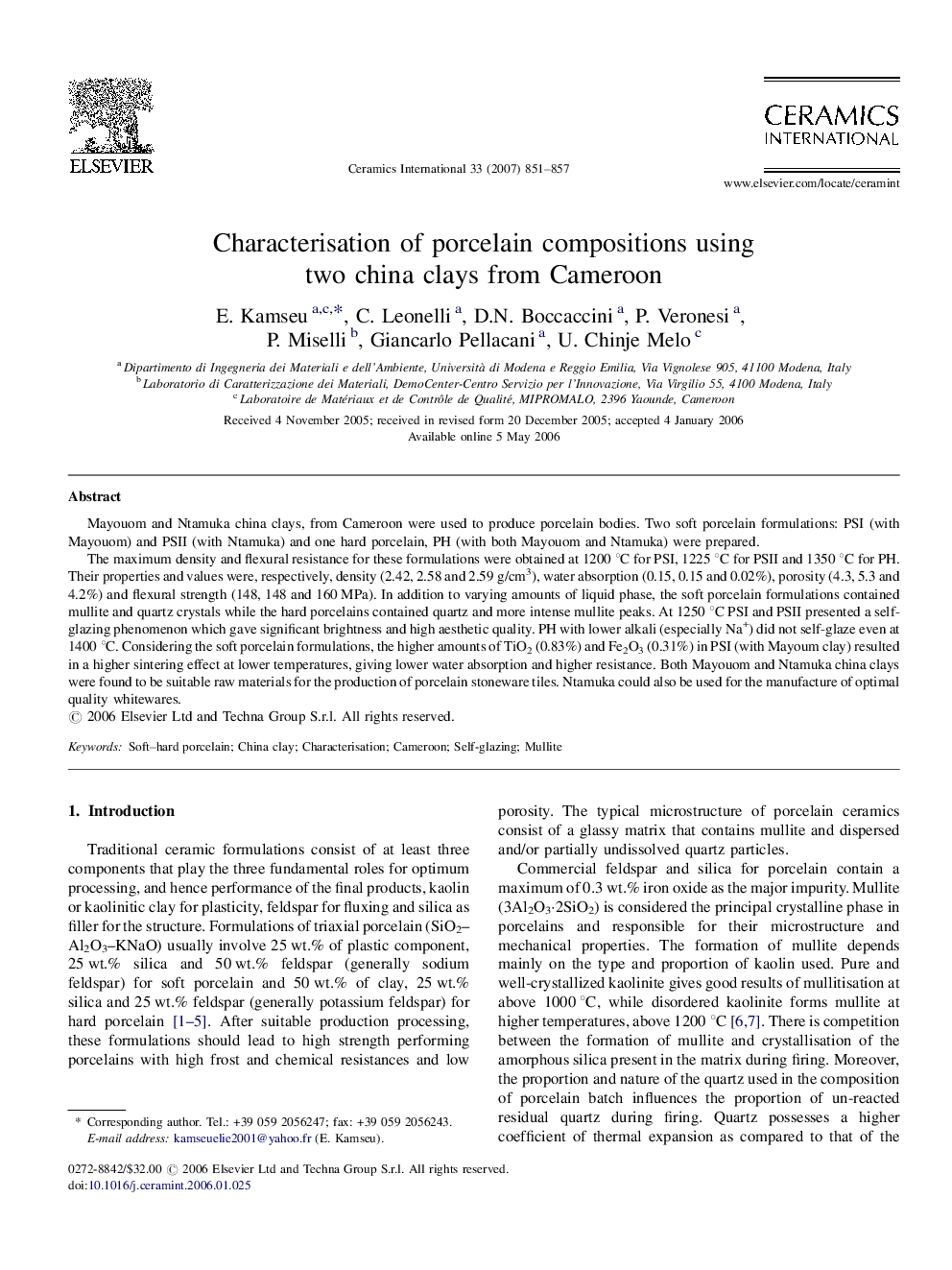| Article ID | Journal | Published Year | Pages | File Type |
|---|---|---|---|---|
| 1464806 | Ceramics International | 2007 | 7 Pages |
Mayouom and Ntamuka china clays, from Cameroon were used to produce porcelain bodies. Two soft porcelain formulations: PSI (with Mayouom) and PSII (with Ntamuka) and one hard porcelain, PH (with both Mayouom and Ntamuka) were prepared.The maximum density and flexural resistance for these formulations were obtained at 1200 °C for PSI, 1225 °C for PSII and 1350 °C for PH. Their properties and values were, respectively, density (2.42, 2.58 and 2.59 g/cm3), water absorption (0.15, 0.15 and 0.02%), porosity (4.3, 5.3 and 4.2%) and flexural strength (148, 148 and 160 MPa). In addition to varying amounts of liquid phase, the soft porcelain formulations contained mullite and quartz crystals while the hard porcelains contained quartz and more intense mullite peaks. At 1250 °C PSI and PSII presented a self-glazing phenomenon which gave significant brightness and high aesthetic quality. PH with lower alkali (especially Na+) did not self-glaze even at 1400 °C. Considering the soft porcelain formulations, the higher amounts of TiO2 (0.83%) and Fe2O3 (0.31%) in PSI (with Mayoum clay) resulted in a higher sintering effect at lower temperatures, giving lower water absorption and higher resistance. Both Mayouom and Ntamuka china clays were found to be suitable raw materials for the production of porcelain stoneware tiles. Ntamuka could also be used for the manufacture of optimal quality whitewares.
